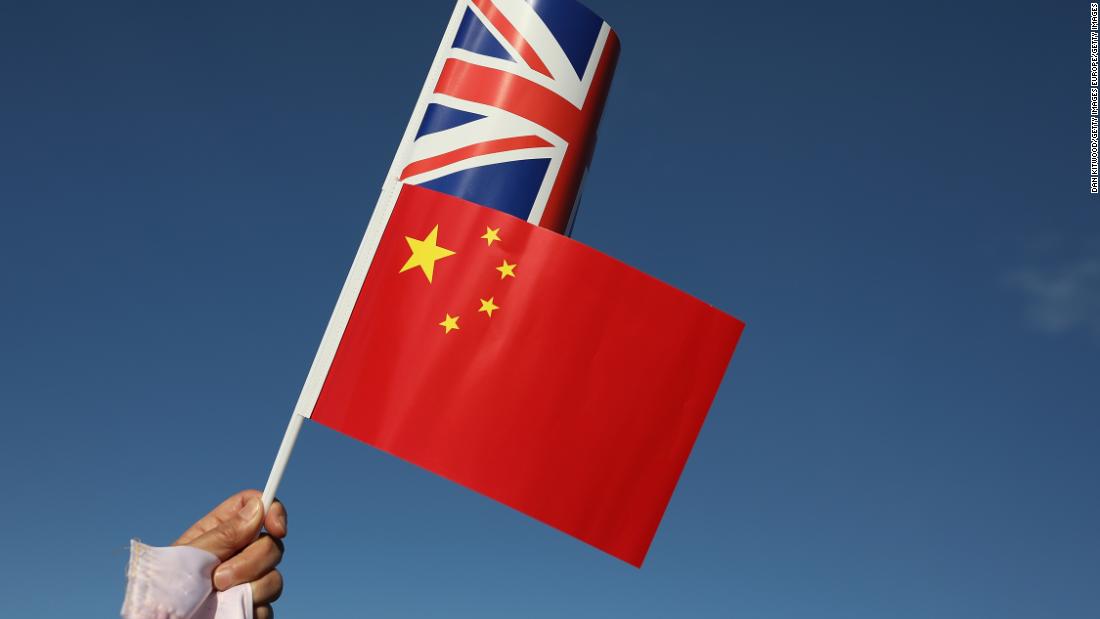
In a statement Friday, China’s Foreign Ministry said the United Kingdom had “imposed unilateral sanctions on relevant Chinese people and entities, citing so-called human rights issues in Xinjiang.”
“This measure, based on nothing but lies and misinformation, blatantly violates international law and the basic rules governing international relations, seriously interferes in China’s internal affairs, and severely undermines Sino-British relations. “.
Among those sanctioned are five members of Parliament: Tom Tugendhat, Iain Duncan Smith, Neil O’Brien, Tim Loughton and Nusrat Ghani, and two members of the House of Lords, David Alton and Helena Kennedy, in addition to academic Joanne Smith Finley and attorney Geoffrey Nice.
“China is firmly committed to safeguarding its national sovereignty, security and development interests, and warns that part of the UK should not go further down the wrong path,” the Chinese Foreign Ministry statement said. “Otherwise, China will make decisive reactions.”
In response, British Foreign Secretary Dominic Raab said that “it says a lot that while the UK joins the international community in sanctioning those responsible for human rights abuses, the Chinese government is sanctioning its critics “.
Interested persons and their immediate family members are prohibited from entering mainland China, Hong Kong and Macao. Their property in China will be frozen and Chinese citizens and institutions will be banned from doing business with them, according to the foreign ministry statement.
The UK ambassador to China has also been summoned by Beijing, to present what he described as “solemn representations, expressing firm opposition and strong condemnation”.
Although relations between Beijing and London have suffered as a result of continued repression in Hong Kong, which the UK has suggested violates a historic deal with China, new sanctions could send them to new lows.
“It will not be silenced”
In reaction to the news on Twitter, Iain Duncan Smith, MP and former leader of the Conservative Party, said the sanctions against him were a “badge of honor”.
“It is our duty to call the abuse of human rights (by the Chinese government) in Hong Kong (and) the genocide of the Uighurs,” Duncan Smith wrote. “Those of us who live freely under the rule of law must speak for those who have no voice.”
Smith Finley, the British academic, said she had been sanctioned “for telling the truth” about Xinjiang “and for raising awareness”.
“I don’t regret talking and they won’t silence me,” he tweeted.
“These actions demonstrate our ongoing commitment to work multilaterally to advance respect for human rights and shed light on those responsible for the (Chinese) and (Communist Party) government for these atrocities,” the US Secretary of State said. United States, Antony Blinken, after the measure.
Speaking on Monday, Chinese Foreign Ministry spokeswoman Hua Chunying said that “for a long time, the United States and the West inadvertently interfered in the internal affairs of other countries using democracy and human rights. as an excuse “.
In a statement, however, David Sassoli, president of the European Parliament, said China’s sanction to members of the European Parliament was “unacceptable and will have consequences”.